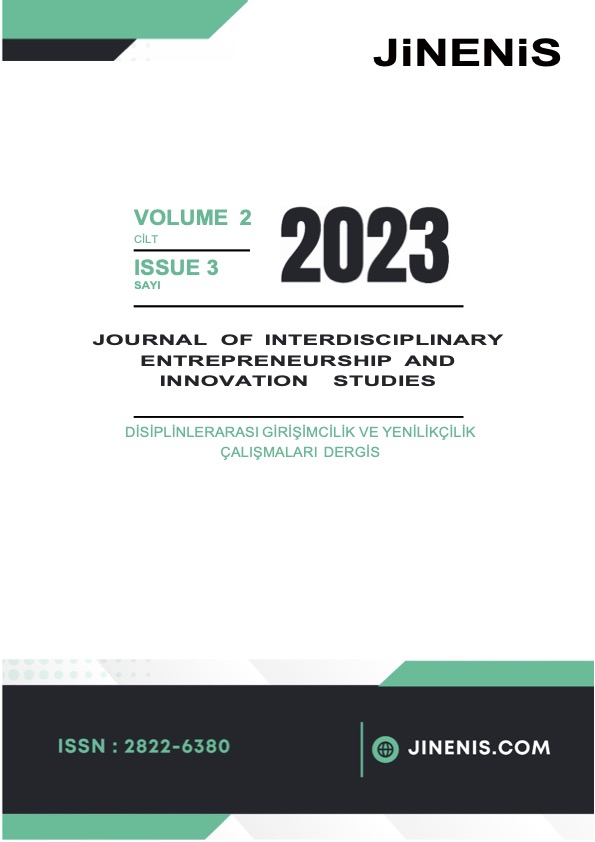Knowledge, Attitude and Practice of Students about Remote Work
DOI:
https://doi.org/10.5281/zenodo.10031793Keywords:
Knowledge, Attitude, Practice, Remote Work, StudentsAbstract
Remote work is one of the essential experiences that some people want to experience in the twentieth century. It is one of the results of the modern technological revolution. This study aimed to assess students' knowledge, attitudes, and practices (KAP) about remote work and to determine if they possess sufficient positive opinions and attributes that would help them thrive in the remote working environment in Turkey, 2022. A cross-sectional survey was conducted between April and May 2022 using a self-developed structured questionnaire distributed online among students between Ondokuz Mayıs university students. Data were analyzed using a statistical package for social sciences (SPSS) program version 25. The descriptive analysis includes tables and percentages to explain the data's main feature. The results showed that students have a high attitude and knowledge, Moderate level of practice toward remote work in Turkey. The study also showed that students have a (moderate) level to practice remote work. The results also showed no statistically significant differences in answers of the study sample about students' knowledge, practice, and attitude about remote work due to the social demographic data variables. And there are no statistically significant differences in answers of the study sample about the Knowledge or practice of students about remote work due to the (Number of family members, Employment sector) variables. And The results also showed differences in the answers of the study sample about the attitude of students about remote work due to the (Number of family members, Employment sector) variables. Every remote worker should educate the community and students about the importance of remote work. Besides, there is a need for more studies to comprehensively investigate the various reasons that affect the lack of acceptance of remote work among some students and how they can be addressed.
References
[1] Dundes, L., & Marx, J. (2006). Balancing work and academics in college: Why do students working 10 to 19 hours per week excel?. Journal of College Student Retention: Research, Theory & Practice, 8(1), 107-120.
[2] Pfeiffer, S. I. (2013). Lessons learned from working with high-ability students. Gifted Education International, 29(1), 86-97.
[3] Weidig-O'Neil, M. L. (2020). IS Mechanisms and Organizational Performance Mediated Through IS Management (Doctoral dissertation, Trident University International).
[4] Simosi, M. (2012). The moderating role of self‐efficacy in the organizational culture–training transfer relationship. International journal of training and development, 16(2), 92-106.
[5] Adigüzel, M. (2020). Covid-19 pandemisinin Türkiye ekonomisine etkilerinin makroekonomik analizi. İstanbul Ticaret Üniversitesi Sosyal Bilimler Dergisi, 19(37), 191-221.
[6] Camp, K. M., Young, M., & Bushardt, S. C. (2022). A millennial manager skills model for the new remote work environment. Management Research Review.
[7] Naktiyok, A., & İşcan, Ö. F. (2003). İşgörenlerin evden çalışmaya ilişkin tutumları: Bireysel özellikler ve iş sürükleyicileri açısından bir uygulama. Akdeniz İİBF Dergisi, 3(6), 53-72.
[8] Hovdhaugen, E. (2015). Working while studying: The impact of term-time employment on dropout rates. Journal of Education and Work, 28(6), 631-651.
[9] Lundberg, C. A. (2004). Working and learning: The role of involvement for employed students. Journal of Student Affairs Research and Practice, 41(2), 400-414.
[10] Akgül, Y. (2016, June). Quality evaluation of E-government websites of Turkey. In 2016 11th Iberian conference on information systems and technologies (CISTI) (pp. 1-7). IEEE.
[11] Göktepe, E. A. (2020). A Phenomenological Research to Determine Individuals' Perception of Distance (Work From Home) Model in Pandemic Period; Public University Example. Journal of Current Researches on Business and Economics, 10(1), 29-42.

Downloads
Published
How to Cite
Issue
Section
License
Copyright (c) 2023 JINENIS

This work is licensed under a Creative Commons Attribution-NonCommercial 4.0 International License.

